I realized I am to stay in this cell for a long time
It was early in the morning, we just had to wake up and get our son in kindergarten. We just opened our eyes – and then my mother ran in, shouting “The Russians are coming!” I went outside. There I saw the head sticking out from behind the fence. I greeted him: “Good morning”, and he said to me: “Maybe for someone it is good, but for someone it is not”. In general, there were several of them, employees of the FSB and the Russian Guard.
Having entered the house, they immediately began to snoop through. The desk was scoured. There, they immediately saw a phone case with the inscription “Who ordered Katya Handzyuk?”, many in Kherson had such cases. One FSB officer showed it to another, who nodded his head affirmatively. In other papers, they found a “Right Sector” flag and a letter of appreciation from “Right Sector” for volunteering. One showed it to the other and everything was taken into account. They immediately told me to get dressed.
I still had cartridges for a rubber pistol lying in my table, and they asked me about it. He took the cartridge, showed it to the Russian Guardsman, who waved, saying, nothing special. After that I was taken to Teploenergetikiv Street.
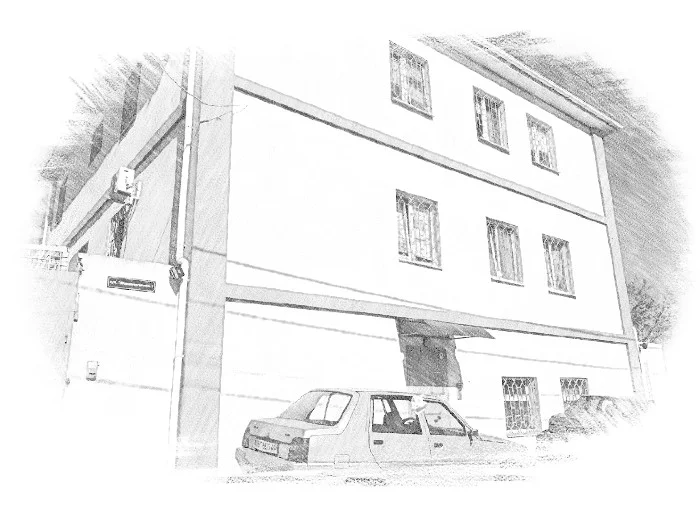
The isolator on the Teploenergetikiv Street in Kherson is one of the main bases in Kherson, the building of a former sober house, renovated in 2013. The Russians are holding captive civilians (ed.)
As soon as the door closed behind me and I sat down at the table, other guys in the cell surrounded me and started asking for news. I realized that they have been sitting here for a long time – from 10 to 40 days, and therefore I will be stuck here.
My “cellmates” immediately asked me if I had been beaten. I looked around, looked at them, at first it seemed to me that they were not badly beaten. My gaze stopped at the man sitting across – he had bruises from his eyes to his mouth. The hands from under his T-shirt had crimson color. I turned the gaze to the other – I saw he had a gunshot wound in the leg. That moment I realized that everyone was bruised and beaten.
A piece the size of 5 kopecks could be picked out of rotten bread
They fed us twice a day – in the morning and in the evening. Prisoners who were more or less loyal to the Russians also prepared and delivered food. They also cleaned the premises and washed the floor.
For example, there was one convict from Kherson who had served 12-14 years. He was detained, and after the Russian prison he basically had nowhere to go, so he decided to stay. There were 12-13 people in total.
At first they fed us only with buckwheat in the morning. We shared it in half, because they gave us no lunch. When the guards were in a good mood, they salted it well so that we would ask for water and go to the toilet more often.
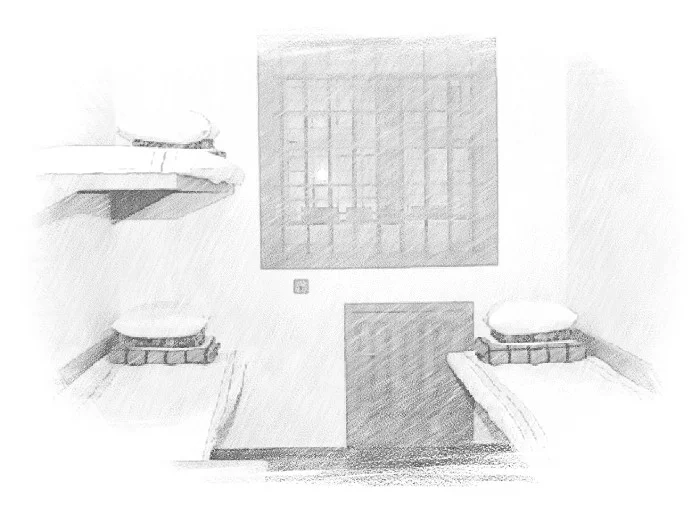
In the evening, Russians gave us some bread and a glass of tea without sugar. The bread was brought from the Crimea, and most often it was sourdough, rotten and moldy. A piece the size of 5 kopecks could be picked out of this rot and be more or less edible. If the bread was more or less normal, we tried to dry it to make rusks, and in the evening we ate them and drank tea. Or we finished the porridge that was left in the morning.
Prisoners were forced to drink salt water, wear cut hair in their pockets, and eat bandages of TDE (Territorial Defense Forces)
I had my first interrogation the very next day. It was conducted by FSB officers, dressed in civilian clothes, while the Russian Guard stood nearby in full armor – in helmets, uniforms, with assault rifles. The first thing they told me was that they have a special person who works with people like me. When I, having already returned to the cell, conveyed these words to the boys, they began to gasp and say that this was a bad sign.
There was a rule: if the Russians didn’t like the way you spoke during the previous interrogation, then their security comes after you to torture in the corridor in the evening.
They could do anything. They forced one fellow to drink salt water to cause diarrhea. Another had his hair cut, put it in his pocket and didn’t allow him to take it out. The Russians said, if you take it out, it will be the end of you. They forced prisoners to eat TDE bandages, cut into pieces. They beat us with clubs, bats and we were electrocuted. They could shoot in the legs or over the head.
Apparently, they liked me at the previous interrogation, because they did not torture me on the first evening of my arrest.
Somewhere in 3 days I had the second interrogation, the main one. At these «conversations», you always sit in a hat, they put it on you when they take you out into the corridor, so that you don’t see anyone. There I was electrocuted, with the “Northern Lights” button. For these purposes, they also had a telephone (an army telephone uses a dynamo machine that produces high voltage current. It is used for tortures by Russians).
They called me a Nazi, they said that people like me, i.e. Nazis, were caught all the way to Henichesk, right under the border. Of course, I replied that we all are also against Nazism. They accused me of being a member of the “Right Sector”, I tried to explain that it is a patriotic organization, not a fascist one.
They also asked if I worked in the SSU (Security Service of Ukraine), demanded from me to tell them my call sign, accused me of being a deputy from a party that promotes war. At the same time, they were surprised one could be in Saakashvili’s party after being a member of PPB (Petro Poroshenko Bloc) and OPFL (Opposition Platform – For Life) and vice versa. I told them that this is what we call a democracy.
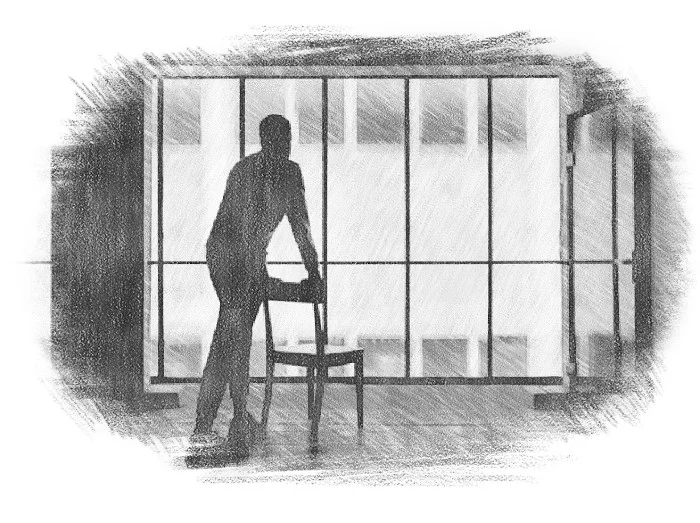
Then they gave me blank sheets and told me to write everything about myself. I have already done this in the cell. I wrote as many as 15 pages, because I knew that those who wrote little, received in response the phrase “You’re fucking lying to me” and numerous beatings. That phrase was generally their coined one.
I hoped that if I wrote too many information, they wouldn’t be interested in reading the whole thing. It worked – they didn’t bother me anymore. Although I thought I would be forced to record a video message calling for surrender and my appreciation to Russia.
Sometimes they were beating someone while we were eating in the cells
Russians forced other prisoners to record such videos. For example, in front of me during the interrogation was one ATO member (Anti-terrorist operation), who was beaten until he defecated. He was not allowed to sleep for 4 days. Then they let him return to his cell, but didn’t let him change his clothes. But then the FSB officers themselves couldn’t stand the stench, so they forced us to wash his things and wash him ourselves. And after the bruises came off, this man was forced to record a video about his love for Russia.
Among the most ruthless guards there was a man called Lyosha. He is a former military man, he took part in Syrian war, and already in this war he was an armored personnel carrier driver. His shift started from 11:00 p.m. to 3:00 a.m., and those were the most terrifying hours. Since the torture took place just in the corridor as there was no special room for such procedure, we could hear everything that was happening in the cells. For the first two days, these screams made practically my head explode.
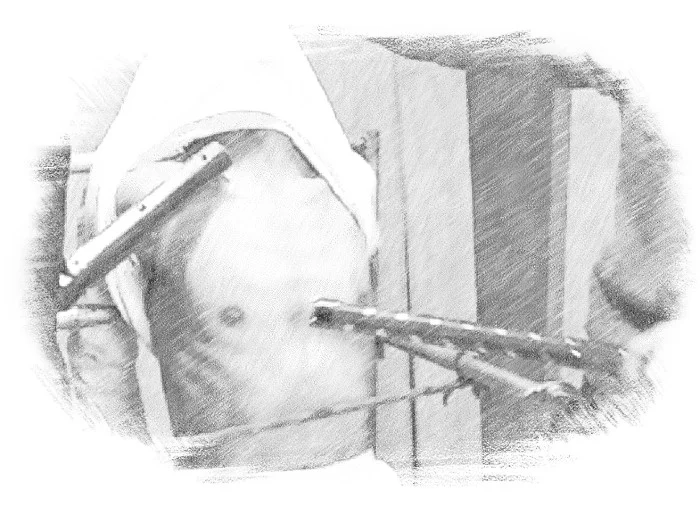
Once they brought a guy who they tried to rape with a club. He begged them, shouted that he had a wife and a child. There was also a man who had already experienced such terror – they allegedly found a photo of child pornography in his phone and punished him in such dreadful way.
Russians brought other people mainly at night. Mostly neighbors or taxi drivers gave up information on them. One of the Russians sat on the third floor and looked into the camera, watching the torture. They shouted to him “Eagle, I’m Dimas, the box has arrived.” It means that they brought some newbie. By the sound of the door, we could tell if another FSB officer had arrived or if a new batch of detainees had been brought in.
If the door slams twice, it means operatives came. If it slams loudly four times, then it means detained newbies arrived. They brought many different people. Among the detained were to be the relatives of policemen, parents of law enforcement officers, and retired policemen.
Sometimes, the Russians detained spouses. Then they released the husband and terrorists demanded him to bring a weapon or surrender someone, while the wife was held hostage. There used to be cases of extracting information about other people and then the arrests went on and on.
One of the detainees confessed of committing sabotage. A train was being repaired in Kakhovka. It was almost ready, and that boy was left to repair it. The two came back, and the train was completely fubar. And Russians started hurting him. He admitted that volunteers brought money from Mykolaiv and paid him to break the train. After that, they began to persecute the volunteers. They started bringing a lot of volunteers.
They also detained women. 4-8 women were in prison cell constantly. They beat them less, and even let them go out for a walk. In general, I heard that the FSB officers who worked in the prison cell on Teploenergetik Street were from Crimea, that is, were our Ukrainians. And that’s why they treated us more or less loyally. But I also heard stories about other Russian torture camps, for example, about how Russians put the prisoners to stay in the cold and forced them to stand for a long time.
Once they brought an old man who recorded a video reading some poetry. He also published a poem against Russia on Facebook. At the end of the video he added “And with these hands I will strangle a Muscovite.” For his actions he spent two weeks in prison.
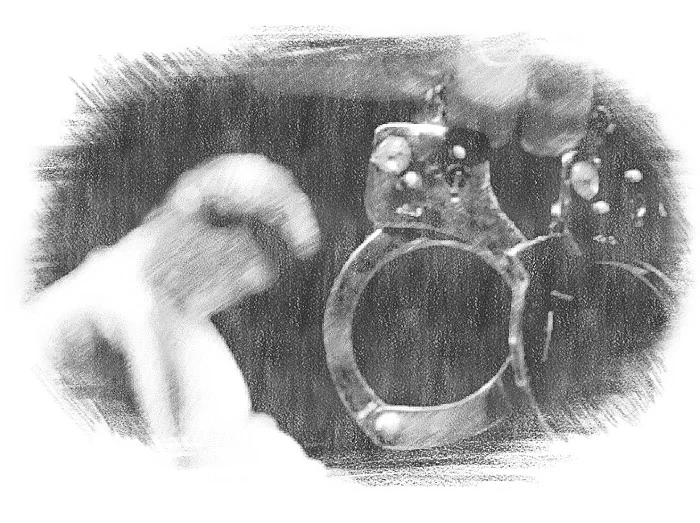
Saboteurs, guerillas, gunners were immediately severely beaten, Russians forced them to crawl into the cell on their stomachs. The window was open and we could hear them screaming. Especially those considered as saboteurs or gunners wildly screamed as they were tortured for a long time.
It used to be that we had breakfast, a person was being beaten, he screamed, begged, and you were just sitting and eating. At first it was wild, we couldn’t eat. But then we hardened. And began to eat.
After the rotation, they allowed us to shave and cut our nails
During sitting sit in the cell, you manage to make friends with many people. Then, if someone was released, we managed to give a note to the relatives, at least to let them know we were alive. This way I got lucky a week later. My wife was even allowed to give me a toothbrush, shorts, a towel and a change of shoes. Although I had to give the shorts to a friend. Russians connected current through his genitals, so his shorts were cut and he was in tatters.
Lately it became a little more comfortable to sit, as a rotation took place, and employees of either the Russian police or the prison system came to replace the Rosguards. Before that, we were not allowed to cut our nails, shave, or cut our hair. We knew that Russians had scissors and hygiene products, because their servants were always clean and well-trimmed. They also didn’t give us mattresses.
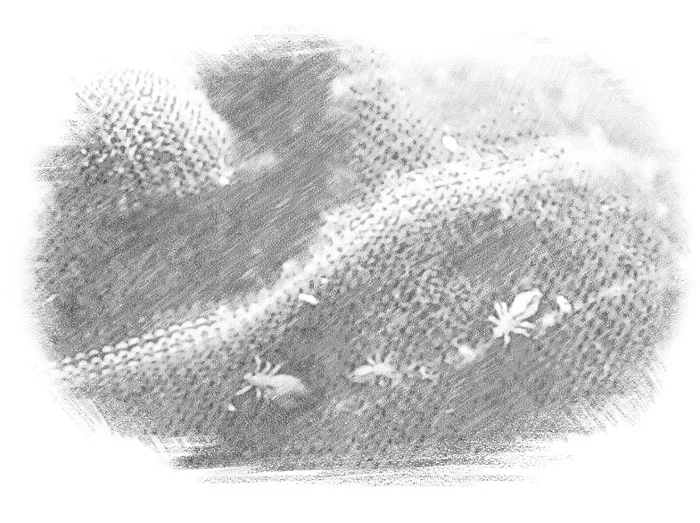
Although the lice didn’t disappear, they bothered us less as they used to.
The new, professional jailers arrived, they ordered us to observe hygiene, wash, cut our hair, and clean the cell. And they gave us mattresses, pillows meds for the heart.
“Heart failure”
People were dying. Although we realized that in our isolation cell it is not as often as in others. The “doctor”, also a service person, without a medical education spoke about such cases. In total, about 5 people died.
There is no telling what they did to their bodies. The diagnosis is the same for everyone – heart failure. If someone died, there was a huge fuss, the “elders” scolded for it, their investigators came and found out that it was really a heart failure.
Although we spent 12 hours in a cell with a corpse. It was one of our cellmates. He had concomitant diseases, could not withstand torture. He was beaten with a club right in the heart. After one of the interrogations, he crawled into the cell on all fours. We gave him food, tried to treat him somehow.
We called the Russians to give him at least some pills. We tried to save him, and in a few days he seemed to feel better. One day he got up, went to the toilet, and I heard some wheezing from the room. I ran after him, realized that he had become worse. For a minute, only a frozen glassy gaze looked at me.
After his death, surely enough we interrogated us. And we were afraid to tell the “superiors” the truth, that the man died from beatings, so we had to say that he had complaints about his heart. In response they nodded their heads and said “Well, it’s clear, heart failure.” After that, everything in the cell was covered with sand.
One of the prisoners developed gangrene after the beatings. They cut off his leg.
The mayor of Kherson was allowed to make calls and go out into the city
One of the guards admitted to me that the mayor of Kherson was sitting with us. Of course, we could not see him, because we were led out into the corridor wearing hats. However, I heard from conversations that the mayor was allowed to make calls, use the phone and even go out into the city.
“Political prisoners” were also there. But we did not see them. Generally, the raids occurred to happen in waves – sometimes they detained purely volunteers, sometimes criminals, sometimes officials.
Russian literature as a separate type of torture
A separate stage of the process of our “denazification” was the library. She was there, in the premises of the prison cell, but we were also brought books directly to the cell.
“The Gulag Archipelago” by Solzhenitsyn, “Word and Deed” by Pikul, collections by Lermontov, Bunin, “Crimean War of 1853”. We were sick of these books.
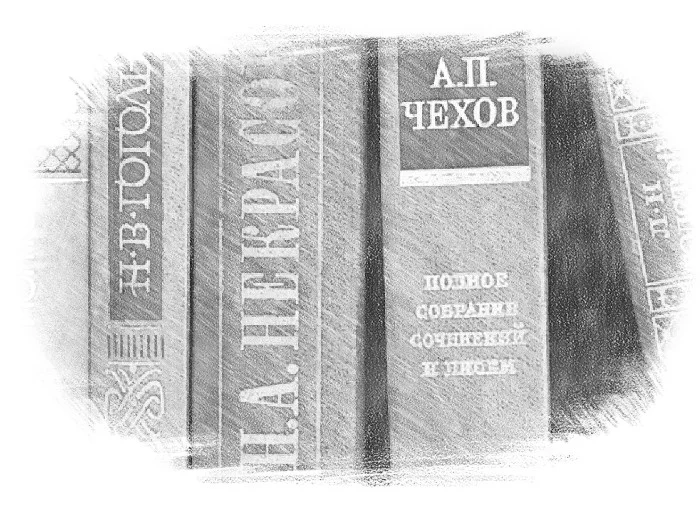
Once we saw a new book, we hoped it was fiction. Instead there were the speeches of some priest.
I remembered his phrase that if an official took a bribe and gave 10% to the church, then it is not a sin, because the church has been oppressed for years, and if it was stolen from the state and given to the church, then it is pleasing to God. That is what faith the Russians have.
“Shooting at the Rus in Kherson was like a good night’s sleep for us”
The Russians were extremely afraid when the AFU (Armed Forces of Ukraine) began to bomb them. The first missile arrived at Pestel Street, the building shooked not only from hitting, but also from their panic. The superiors scolded them: “I see panic in your eyes, don’t screw up!”
And for us, when our soldiers fired at the Russians in Kherson, it was like a “good night”. After that we fell asleep.
“We kept a self-made calendar and marked the days until the release”
From conversations with FBS members, we understood that once information is extracted from a person, they start to speak well and then release you. The FSB officer told one captive that 95% of prisoners got out of here. Another guard boasted that 500 people have already passed through the prison cell. This way we calculated that on average people sit there for 2-3 weeks. I have already sat more.
One evening I was called in for interrogation. These were already other FSB officers, they did not know who detained me, and how the search was conducted. They asked about it and I said that the family was very frightened and the search was very thorough. They liked it.
They also asked whether it was easy to stay in the cell. I answered honestly because it was really hard to be there. It even got to the point that we heard someone’s voice.
For example, I constantly heard someone calling me. A young man was sitting next to me, who thought that a child was calling him. And if the first 40 days still passed more or less, then it started to be even more overwhelmed.
At the last interrogation, they again asked whether I cooperated with the SSU, or whether I was tortured by the Ukrainian special services. I denied everything. They asked again about the call sign. They promised to return all my items. They said they would think about what to do with me next, but they mentioned that they were going to release me.
In a day I was called in again. I wrote them a list of those I was sure had left Kherson. They already knew everyone from this list. I was released. The Russians returned my things, although some documents and money, of course, disappeared.
We kept a self-made calendar, wrote there, noted who and when was detained. Some person was supposed to get a release and take the calendar with, but forgot to do it. I wanted to post it on Facebook. I’m sorry I didn’t take it.
We published this story without conclusions on the day of the liberation of Kherson. The hero’s name has been changed for security purposes. Let’s keep it this way, until he himself wants to name himself. But today our hero is each of the people of Kherson who have been under occupation since March 2022. Every person could end up in a Russian torture chamber. Everyone counted the days until the liberation in a self-made calendar and everyone, falling asleep during missile attacks, hoped that soon Kherson would be liberated.


